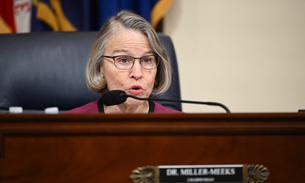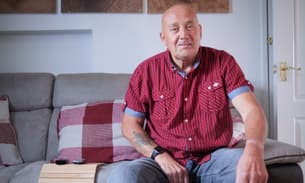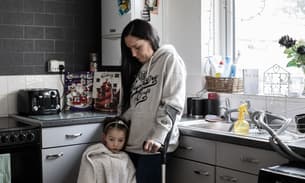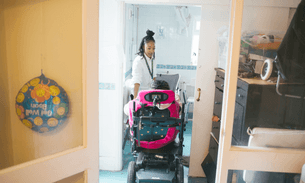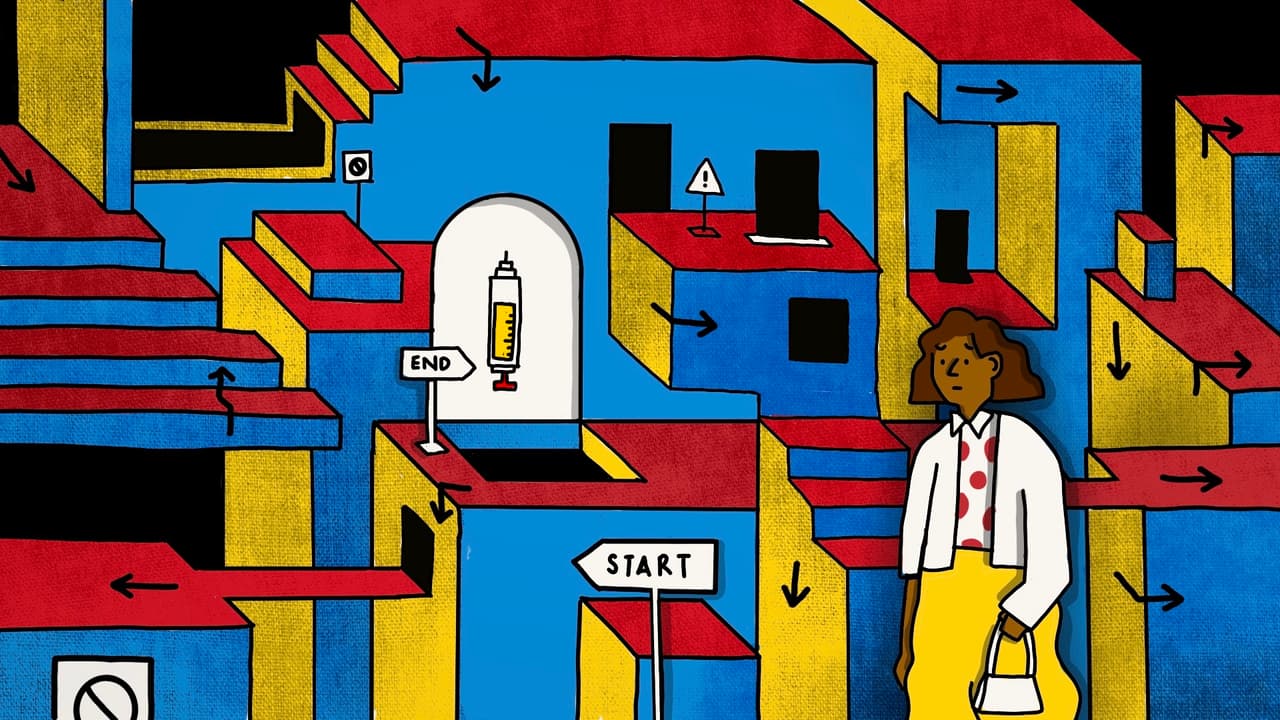
Most GP surgeries refuse to register undocumented migrants despite NHS policy
Survey finds official guidelines being extensively ignored to leave hundreds of thousands facing a vaccine labyrinth
Averil Pooten-Watan comes from a family of nurses: her mother was a nurse, as were her aunts. She herself manages a care home, and has been volunteering to help organise pop-up clinics for people who need to be vaccinated against Covid-19 in Waltham Forest, north-east London.
The clinics have vaccinated many people from Averil’s own Filipino community, which has often faced difficulties accessing the NHS. She has seen some within her community become undocumented migrants – people who live in the UK but lack vital paperwork – as the costs of visa fees and legal advice have mounted. In April she tried to help a friend, who has lived in the country for 20 years, register with a GP to get vaccinated; she was turned away because she did not have any form of identification or proof of address.
There are thought to be up to 1.2 million undocumented migrants in the UK, according to a 2019 report by the Pew social science research centre. Many are cut off from public services, often with the fear of deportation hanging over them. Averil said she knew people who would rather have an appointment over Zoom with a doctor in the Philippines than try to register with a GP in the UK, even though NHS policy explicitly entitles them to do so.
During the pandemic, those who live in the UK, but have an uncertain immigration status, have faced major barriers to receiving the Covid-19 vaccine. The simplest route to getting vaccinated is to be registered with a GP: invitations to book an appointment are sent to the mobile number or address held by your surgery.
NHS England policy is clear. It says on its website: “Anyone in England can register with a GP surgery. It’s free to register. You do not need proof of address or immigration status, ID or an NHS number.”
But an investigation by the Bureau of Investigative Journalism has found that less than a quarter of GP surgeries (24%) surveyed in cities across England, Scotland and Wales would register someone without proof of address, proof of ID or legal immigration status.
Almost two-thirds (62%) told us they would not register the patient, while the remaining 14% said they were unsure whether they could.
“There’s a big community of people that are undocumented who want the vaccine to keep their employer safe, to keep the public safe, to keep themselves safe,” Averil said. “But how do they do that?”
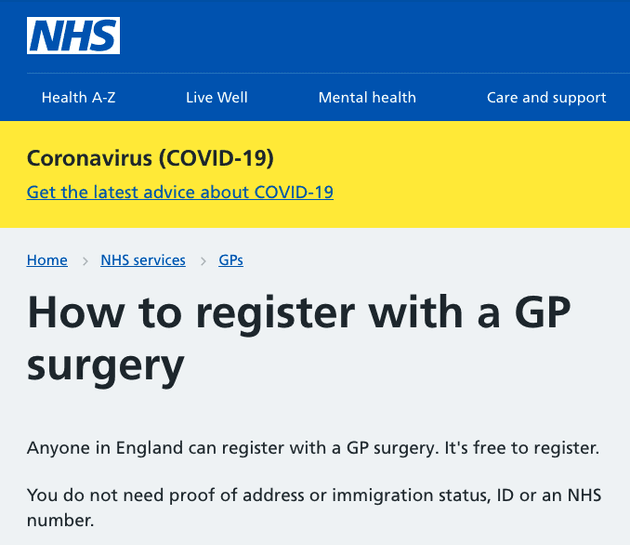 A screengrab from the NHS website
A screengrab from the NHS website
An impenetrable maze
By law, a GP surgery can only refuse a patient’s registration if it has “reasonable grounds” to do so. NHS policies in England and Scotland state that not having proof of address, ID or immigration status do not constitute reasonable grounds for refusal. A spokesperson for the Welsh government confirmed that proof of address and ID were not required for registration. And yet in reality, people trying to register are often asked for immigration status and official documents – and often turned away if they do not have them.
The Bureau’s findings suggest anyone who is not signed up to a GP could encounter severe difficulties in trying to get a Covid-19 vaccine.
When calling the NHS England coronavirus helpline to ask about booking a vaccine appointment, a person would be directed to register with a surgery; the online booking form for England asks for a person’s NHS number and their personal details to ensure they match up with those of a registered patient. There are similar national booking systems in Scotland and Wales.
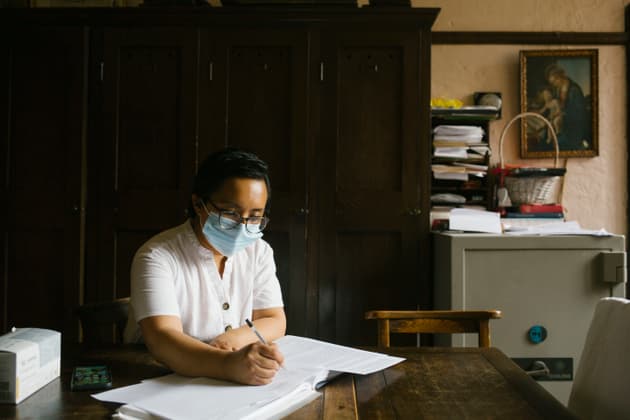 Averil working at the pop-up clinic she helped set up in London
All photographs: Alex Sturrock
Averil working at the pop-up clinic she helped set up in London
All photographs: Alex Sturrock
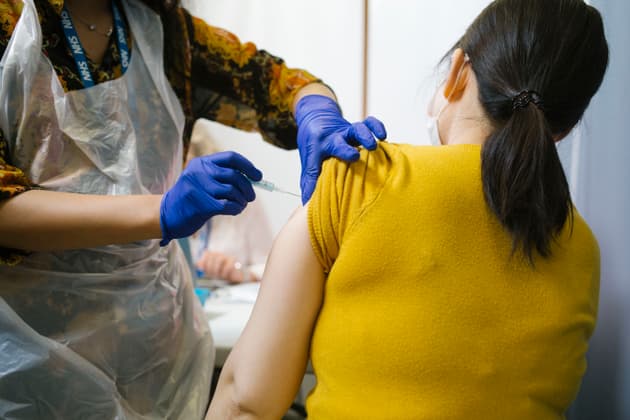 Many in Averil's local Filipino community face problems accessing NHS services
Many in Averil's local Filipino community face problems accessing NHS services
There are various reasons that people in the UK could end up without key documents, said Anna Miller, head of policy and advocacy at Doctors of the World, especially given the difficult journeys they could have taken to get here. Some who do have a passport may be unwilling to show it because it contains an expired visa. Undocumented migrants in the UK cannot open a bank account or rent a property, which means they will not have bank statements or tenancy agreements to use as proof of address.
Nonetheless, Public Health England guidelines make it clear that they are still eligible to register with a GP and are entitled to vaccination and treatment for Covid-19 without either an NHS number or being registered with a surgery.
The Bureau contacted around a third of GP practices in 10 locations with large populations of people born outside the UK: Newham and Brent in London, Manchester, Birmingham, Coventry, Leicester, Slough, Luton, Cardiff and Glasgow. We asked about registering a hypothetical patient: “Rosa”, a woman in her 40s without ID or proof of address.
Join us for our panel event next week to discuss our findings and explore what barriers to the Covid vaccine mean on the ground
Sign up hereLuton was the least accommodating; none of the surgeries we spoke to agreed to register our patient. In Brent, 12 out of 15 surgeries said they would not register our patient; in Slough, it was 8 out of 10; in Cardiff, it was 13 out of 17. In Manchester, however, 10 out of 22 surgeries asked said they would register Rosa.
Our callers were often given incorrect information. One Luton surgery told us: “She won’t be able to get vaccinated until she’s got an NHS number.” One in Birmingham said: “We wouldn’t be able to administer the vaccine if she hasn’t got UK status.” A caller speaking to a practice in Coventry was told: “Unless we’re advised otherwise, which we haven’t been until now, then there’s no facility for her to be vaccinated if she’s not got an NHS number.”
In just over half of all calls, we were able to ask surgeries if they could suggest alternative vaccination options. The most common response, given more than a third of the time, was that they did not know.
One in six surgeries told us our patient would not be eligible for the vaccine because they lacked either an NHS number or immigration status. None of the surgeries that refused to register “Rosa” offered her the opportunity to be vaccinated as an unregistered patient, which is a clear option in Public Health England guidance.
Earlier this year the vaccines minister, Nadhim Zahawi, assured Parliament that because there is no charge for the vaccine for people living in the UK, no proof of residence or immigration status is needed. This month, a spokesperson for the Department of Health and Social Care told the Bureau that this is still the position.
However, Deepti Gurdasani, an epidemiologist at Queen Mary University of London, told the Bureau: “While the government says vaccines are available to all, this is just an empty statement given it has clearly done very little to ensure that this is actually the case and the reality for those on the ground is clearly very different. From a public health and humanitarian perspective, this is extremely concerning.”
Dr Gwenetta Curry is a lecturer on race, ethnicity and health at the University of Edinburgh’s Usher Institute, where she is part of a team reviewing Covid-19 data. She said that failing to vaccinate undocumented migrants not only leaves a swathe of the population vulnerable, “it also prevents the full eradication of Covid-19 in the UK”.
She added: “What Covid has taught us is that our health is interconnected with people and communities outside of just our personal circle. Providing the vaccine to all vulnerable groups is also an ethical issue. These vulnerable populations often occupy occupations that are critical to the running of society – transportation, food production and manufacturing jobs. So it will be imperative that they receive the vaccine as well.”
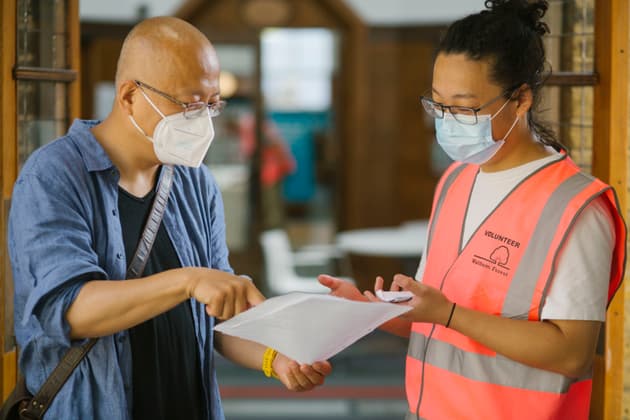 No-questions-asked walk-in clinics have been met with huge uptake …
No-questions-asked walk-in clinics have been met with huge uptake …
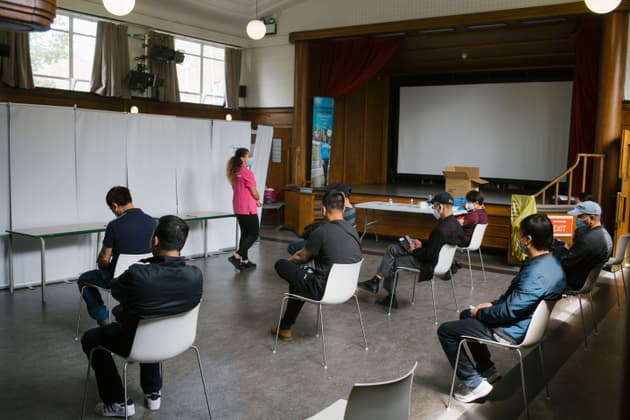 … but they have been left to local health systems to organise
… but they have been left to local health systems to organise
Migrants without official papers have seen their situation worsen during the pandemic, with many forced on to the streets, said Aliya Yule, healthcare organiser at Migrants Organise. “This has happened as people have lost their jobs and been unable to access benefits or support due to visa conditions like ‘no recourse to public funds’ and because people are unable to afford the cost to renew their visa.
“Under the current system, you can become undocumented for a variety of reasons outside of your control, including if your relationship breaks down, if you get poor legal advice – which is common due to huge cuts to legal aid – if you or a relative get really sick, you or your partner get fired, you’re not able to pay the fees. Or just not knowing the rules or making a mistake.”
Fear of data-sharing
There are other factors that might stop undocumented migrants from coming forward for the vaccine. One is the fear of data sharing.
Until 2018 there was a memorandum of understanding between NHS Digital, the Department of Health and the Home Office which meant patients’ data could be shared and potentially used for deportations. The memo has since been cancelled, but the fear remains.
Theresa May’s hostile environment policies, introduced in 2012 when she was home secretary, were felt throughout the NHS, helping to “foster a culture of discrimination” and “create fear and mistrust” among undocumented migrants, Yule explained.
She said: “The hostile environment has created a culture of questioning people’s entitlement to accessing services on the basis of your immigration status, how you look, or your foreign-sounding name, which trickles down into primary care, making it more difficult for you to register with a GP even though you are entitled to.”
The Bureau spoke to Rahul*, an undocumented migrant from India who lives and works in the north-west of England. He was reluctant to register with a GP. “I didn’t want to join because of Home Office data sharing,” he said, “but I have to because I must go to work otherwise I will die of hunger.”
However, his attempts proved frustrating. The process took him two months and in the end he needed an advocate from a migrant organisation and he had to show proof of address.
“I went to three surgeries in my local area to enquire,” Rahul said. “All of the receptionists at the surgeries told me that you should have a valid ID and proof of address. I showed them a website explaining that registering with a GP doesn’t need proof of address and ID. Still they said to me, ‘We need to put it on the system otherwise your registration will be declined.'”
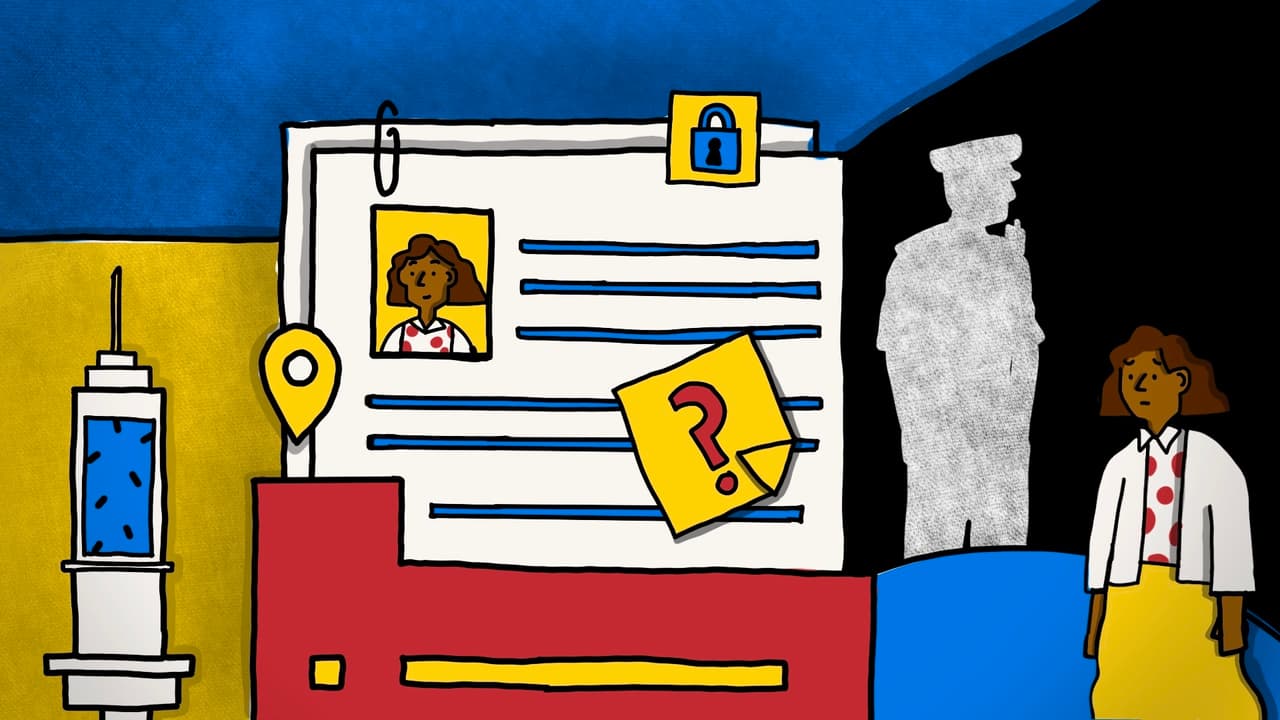
Dr Victoria Tzortziou Brown, joint honorary secretary for the Royal College of GPs, explained that a GP surgery “is the first point of contact with the health service for 90% of patients”. She added: “It is very important for addressing health inequalities that all patients can access general practice and if people face barriers due to a lack of awareness – sometimes because of past miscommunication – around registration eligibility rules, this needs to be addressed.”
She added that the Royal College of GPs has proposed ways to improve access, including better training for receptionists and clinical staff around what documentation is necessary, “so that vulnerable people don’t fall through the gaps because of avoidable technicalities”.
Where no-questions-asked pop-up vaccine clinics have been set up, demand has been high. Averil Pooten-Watan said people came to her London clinic from as far as Kent, Brighton and even Inverness. Her second pop-up in June was fully booked within 24 hours of her advertising it on social media.
Liz is a 48-year-old domestic worker from the Philippines. She has the right to remain in the UK through the National Referral Mechanism, set up to support victims of modern slavery. Despite this, it took five attempts and almost four years for her registration with a GP to be accepted.
Avril Sharp, policy and casework officer at the migrants’ rights organisation Kalayaan, helped Liz to register. “We’re a small charity – we tell them what the law is and tell them what should happen,” she said. “But for them to then go out to a surgery, and then be turned away, maybe humiliated in front of a waiting room of people pre-pandemic, because you don’t have [paperwork] which you don’t need, well, some people don’t come back from that. There are huge, huge repercussions for them later on if they have health issues.”
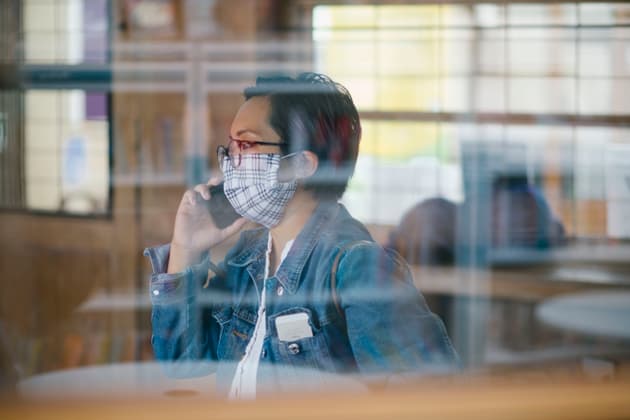 A clinic Averil set up in north-east London attracted people from as far as Scotland
A clinic Averil set up in north-east London attracted people from as far as Scotland
Mass vaccination drive
There have been some attempts to boost low vaccine uptake in under-served communities by setting up mobile vaccination vans and promoting walk-in centres. Many have made clear they are open to undocumented migrants. Several walk-in clinics we found advertised online, however, suggested that at least some documents were required.
James Skinner, health and human rights lead for the medical charity Medact, said the government has left it up to local health systems to organise accessible walk-in clinics, which have been a vital part of the vaccine roll-out.
“The reality for most people is that it’s luck of the draw whether or not there is a pop-up in the area,” he added, “and luck again if they hear about it because promotion relies on ad-hoc publicity and word of mouth, often with short notice to sign up.”
Improving access
Doctors of the World, a human rights organisation, has tried to tackle the problem of access by encouraging GP practices to become “safe surgeries” by committing to follow the registration policies set out by NHS England.
Manchester and Birmingham, the two cities where surgeries were most likely to register “Rosa”, are areas where Doctors of the World has focused its outreach work, said Anna Miller, the group’s head of policy and advocacy.
The Cranleigh Gardens Medical Centre in Bridgewater in the Midlands recently joined the safe surgeries network. Until a few months ago, the practice’s receptionists would ask for ID, proof of address and immigration status. The surgery is in a deprived area where there are drug users, and some practice managers were concerned patients might register at several surgeries to obtain extra medication if they were not required to show documents.
NHS policy states that suspected fraud is not a reason to refuse registration. Dr Lucy West, a former GP registrar at the practice who pushed for and helped implement the changes, said they tried to create a policy that would support admin staff. She said it was about understanding the responsibilities and burdens they face, and the poor treatment they can be subjected to by the public.
“A lot of doctors don’t know this information. If they don’t know the principles that’s a real baseline problem. But they don’t tend to manage the day to day running of the practices, that’s devolved [to admin staff],” she says.
In the meantime, Averil Pooten-Watan continues to help other communities set up their own pop-up clinics. While her friend has now been vaccinated, she has still not been able to register with a GP. Averil says her next campaign will be to help those that attended her pop-ups get registered.
“I’m a child of an immigrant who came to work in the NHS, and the NHS was built for everyone for free.”
“We’ve reached all these people so far that would otherwise never have been reached and it’s such an opportunity at this point for us to make so much more out of this.”
*Some names have been changed
England
In England you should be able to get the vaccine by attending a walk-in clinic and your local Clinical Commissioning Group (CCG) should have information on when and where these are happening. You can find your local one by searching here.
If you are having problems finding a walk-in clinic or getting vaccinated at one, you can contact Doctors of the World’s clinic advice helpline on 0808 1647 686 (freephone).
Scotland
In Scotland, you should be able to get the vaccine by phoning the helpline on 0800 030 8013, even if you are not registered with a GP or do not have a Community Health Index (CHI) number. You should also be able to find out local vaccine drop-in centres here.
If you are having problems finding one, you can contact Scottish Refugee Council’s freephone helpline on 0808 196 7274.
Wales
You can call the Welsh Refugee Council on 0808 196 7273 (Cardiff); 0808 196 7273 (Newport); 0808 196 7273 (Swansea); 0808 196 7273 (Wrexham) - all freephone numbers.
If you have any problems accessing a Covid vaccination through any of these routes, please let us know by emailing [email protected] or WhatsApping us on 07516 275710, in confidence.
Reporting team: Rachel Hamada, Emiliano Mellino, Vicky Gayle, Sarah Haque, Robyn Vinter, Ruth Bushi and Siriol Griffiths
Community organiser: Emiliano Mellino
Additional research: Andrew Messios, Tommy Greene, Sam Doak, Valerie Nangle, Victoria Thiele, Reece Stafferton, Frankie Goodway
Bureau Local editor: Emily Wilson
Investigations editor: Meirion Jones
Production editor: Alex Hess
Fact checker: Alice Milliken
Photography: Alex Sturrock
Illustrations: Soofiya Andry
Our reporting on health inequality is part of our Bureau Local project, which has many funders. None of our funders have any influence over the Bureau’s editorial decisions or output.
-
Area:
-
Subject:



